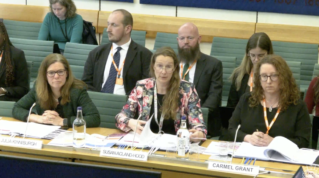The government has watered down its rules on T Level industry placements – including by allowing up to a fifth of hours to be delivered remotely in certain subjects.
Updated delivery guidance published today states that there is only an “expectation” that students will “spend the majority of their placement hours in-person, within an external workplace setting”.
Previous rules had made clear that all placements, which must be a minimum of 315-hours (45 days), “cannot be delivered virtually/remotely, except for work taster activities”.
The Department for Education played down the new wording, telling FE Week that it means all T Level students can undertake a maximum of 35 hours of work taster activities as part of their placement remotely – a rule that has been in place since the launch of the qualification – and pressed that the remaining hours must be delivered in person.
However, the DfE has made clear that in six of the 23 available subjects, 20 per cent of a student’s industry placement hours can now be done remotely. The remote working can even take place from a learner’s home in “exceptional cases”.
The subjects where this hybrid approach can be applied are accounting; digital; finance; legal services; management and administration; and media, broadcast and production.
For example, a digital student undertaking a 315-hour industry placement can spend up to nine days of it remotely.
Explaining the rationale behind this decision, the DfE’s guidance said: “The hybrid (remote) placements approach can be used in office-based environments where a hybrid way of working (i.e., where some of the time is spent working remotely) has become an established practice/way of working.
“This approach aims to facilitate greater access to a wider range of employers as providers will be able to access businesses outside of their immediate local area.”
It comes after the DfE allowed students who started a T Level in 2020 and 2021 to complete a chunk of their industry placement remotely in light of the pandemic.
The move was aimed to help ease ministers’ and sector leaders’ fears of convincing enough businesses to host students for the 315-hour or 45-day placements, a long-held concern that was exacerbated by Covid-19.
Minister for skills, apprenticeships and higher education Robert Halfon said: “We’re introducing greater flexibility to help more employers deliver industry placements, including allowing some placement hours to be delivered remotely for office-based T Levels, to ensure that both businesses and learners are able to get the most out of the industry placement.
“As we expand T Levels, industry placements need to follow suit, and these changes will ensure that businesses of all sizes, across all industries, can continue to offer high-quality, accessible placements to all students.”
Today’s updated delivery guidance said the location of the remote hours of an industry placement must take place in a “suitable environment”, such as a dedicated office space at the provider’s setting.
In exceptional cases, students can undertake placement hours from home “if the provider is satisfied students have an appropriate environment to work from and there are no safeguarding concerns”.
The provider and the employer must agree which elements of the placement can be achieved through remote working in advance of the placement starting.
Providers “must be satisfied that employers can fully commit to supporting the student throughout, preferably with experience of offering this type of provision for young people”, the guidance said.
The DfE has also retained the rule that industry placements can be split across a maximum of two employers.

















Your thoughts